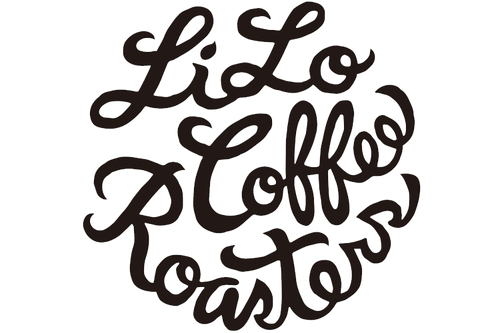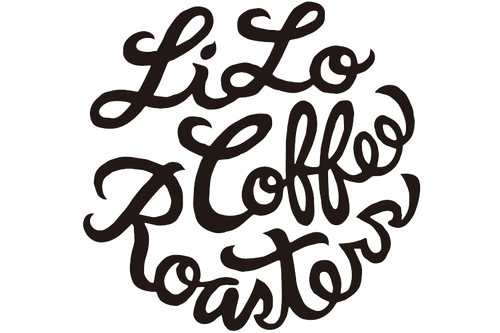【喫茶】COSTA RICA Volcán Azul Geisha Anaerobic Natural
- Regular
- ¥6,600
- Sale
- ¥6,600
- Regular
- Unit Price
- per
Size: 200g
Grind: Whole Bean
We will deliver coffee beans roasted on 20 February.
2月20日焙煎のコーヒー豆をお届けします。
【Cupping Comment】
① An elegant flavor of jasmine with the tartness of kiwi.
② A refreshing sweetness like lemon and white grape.
③ A subtle sweetness of cherry with a rich aftertaste reminiscent of rosé wine that lingers.
【Origin】 Costa Rica
【Region】 Poás Volcano, West Valley
【Farm】 Volcán Azul / Alejo Castro Kahle
【Altitude】 1780m
【Variety】Geisha
【Process】 Anaerobic Natural
【Roast Level】 1 light roast
【Flavor】jasmine, kiwi, lemon, white grape, cherry, rosé wine
【Start date of handling】 2024, 12/6
We ship coffee beans within 7 days of roasting.
About the beans, stickers and flavor illustrations that arrive
透明感のあるアナエロビックナチュラル
アナエロビックナチュラルは、発酵由来の複雑な甘さや深みをもたらしてくれることの多い生産処理です。
しかしこのコーヒーは、アナエロビックナチュラルのイメージをいい意味で裏切る、非常に綺麗な酸と透き通る余韻に仕上がっています。
フルーティでフローラル、クリアで透明感のある味わいで、fermented(微生物の発酵プロセスが生み出した)ではなく、enzymatic(コーヒー豆自体が持つ酵素の活動が生み出した)と表現したくなる素晴らしいいコーヒーです。
豆に黒いマダラ模様が見られます。これはコゲではなく、シルバースキンと呼ばれる薄皮です。このように豆にシルバースキンが付着しているのは、コーヒーチェリーの糖度が高かった証拠です。
A Transparent Anaerobic Natural
The anaerobic natural process often brings out complex sweetness and depth derived from fermentation.
However, this coffee defies expectations in the best way possible, showcasing exceptionally clean acidity and a crystal-clear finish.
With its fruity, floral, and transparent profile, the coffee feels less "fermented" (flavors developed primarily through microbial fermentation) and more "enzymatic" (flavors naturally unlocked by the coffee beans' inherent enzymes). It's a truly remarkable experience.
You may notice black speckles on the beans, a result of attached silver skin. This feature is a testament to the high sugar content of the coffee cherries during harvesting.

前よりもおいしいコーヒーを、200年間。
Volcán Azul農園のAlejo Castro Kahleさんは「常に改善を止めない」という強い意志を持っています。
「コーヒーの品質を高めるために私たちが大切にしているのが、環境条件を万全に整えること。もともとコーヒー栽培に適した火山灰の土壌があるので、多くの石灰岩を混ぜています。また、違うタイプの植物で土を覆うことで、雨で土が侵食されるのを防ぐだけでなく、有機成分を土に染み込ませています。
こうして土壌と品種の個性がうまくかけ合わさったコーヒーの風味を増すのが精製所の役割です。風味をよくするために、土壌と精製プロセスを改良し続ける努力を怠らず、前回よりも質がいいもの、サンプルよりも質がいいものをお客さんに届けるように心がけています。
たとえば今は、ワインやビール生産で使われている発酵処理法をコーヒーに応用していますが、品質向上にチャレンジし続ける姿勢はある意味、私たちの先祖から受け継いだ教訓であり生き方でもある。その時々で精製方法を変えているのも、よりよいものを届けるための必要な進化です。死ぬ前に人生最後のコーヒーを飲んだときに、『これまでで最高のコーヒーだった』と思えるのが理想ですね」

Better Coffee for 200 Years and Beyond.
Alejo Castro Kahle from Volcán Azul Farm holds a steadfast belief in "never stopping the pursuit of improvement."
“To enhance the quality of coffee, we prioritize creating the best environmental conditions. Our volcanic soil is naturally ideal for coffee cultivation, but we enrich it further by mixing in significant amounts of limestone. Additionally, we cover the soil with different types of plants, which not only prevent erosion caused by rain but also infuse organic matter into the soil.
The role of our processing station is to amplify the interplay between the soil’s characteristics and the coffee varieties’ traits. We never stop refining the soil and processing methods to enhance flavors, ensuring that what we deliver is always better than before—better than the previous harvest, better than the sample.
For example, we’re currently adapting fermentation methods used in wine and beer production to coffee processing. This relentless pursuit of quality improvement is, in a way, a philosophy passed down from our ancestors. Changing our processing techniques as needed is a necessary evolution to deliver the best product possible.
My ideal scenario is this: when I drink my last cup of coffee at the end of my life, I want to think, ‘That was the best coffee I’ve ever had.’”

1821年に独立後、国家として経済的に自立するためにコーヒー栽培に力を入れ始めた中米の国コスタリカ。1830年代、その中でヨーロッパのグルメな人々を満足させる世界一のコーヒーをつくるべく、Volcán Azulを創業したのがアレホ・ヒメネスさんです。子から孫へと代々受け継がれてきたそのバトンは今、5代目のアレホ・カールさんへと手渡されています。
最高品質のコーヒーを栽培、輸出することにこだわるVolcán Azulは、1980年代より1500haの熱帯雨林も所有し自然保護に努めながら、気候変動の影響を軽減させている。自然や地球と調和しながら生きるアレホ家のDNAは、5代目のカールさんにも息づいています。
「当時のコーヒー栽培や輸出がどんなに難しかったかを思うと、私たちの先祖の取り組みすべてがすばらしいことだと誇りに思います。最高品質のコーヒーを生産することが私たちの目標であり、彼らの功績を称える最善の方法なのです。
After gaining independence in 1821, Costa Rica began focusing on coffee cultivation to achieve economic self-sufficiency as a nation. In the 1830s, Alejo Jiménez founded Volcán Azul with the ambitious goal of producing the world's finest coffee to satisfy the discerning palates of European gourmets. This legacy, passed down through generations, is now in the hands of the fifth-generation steward, Alejo Kahle.
Volcán Azul remains dedicated to growing and exporting coffee of the highest quality. Since the 1980s, they have owned 1,500 hectares of tropical rainforest, contributing to conservation efforts and mitigating the effects of climate change. The Alejo family’s DNA, which values harmony with nature and the planet, continues to thrive under the leadership of the fifth-generation Alejo Kahle.
"When I think about how challenging coffee cultivation and export must have been in those days, I feel immense pride in everything our ancestors accomplished. Producing coffee of the highest quality is not just our goal—it is the best way to honor their legacy."


今こそ原点回帰
中米のなかでは政治的、社会的に安定している国・コスタリカは、経済成長に伴いコーヒーを取り巻く状況も様変わりしています。観光や生命科学、技術産業が発展し、コスタリカ最大の輸出品はコーヒーから人工バイパス、カテーテルなどの医療器具に変わりました。ボルカン・アズールの農園周辺では、定年を迎えたアメリカ人が移住し、小さな農園の土地を買い上げるケースがよく見られるように。コーヒーピッカーの仕事を避けるコスタリカ人も増えているといいます。
「コスタリカは近年、かつてヨーロッパや日本が歩んだ道を歩んでいます。人件費が高くなっている今のコスタリカで生き残っていけるのは、掛け値なしに高品質のコーヒーだけでしょうね。だから私たちも今、規模を縮小し、一つの農園と小さなミルで味わい深いコーヒーを生産していた創業期への原点回帰を進めているところです。具体的にはブルボンとティピカからコーヒー栽培に挑んだ初代アレホの遺志を継ぎ、それらの品種の栽培を始めようと思っています」
A Return to the Roots
Costa Rica, a politically and socially stable nation in Central America, has seen significant changes in its coffee landscape due to economic growth. With the development of tourism, life sciences, and technology industries, Costa Rica’s top exports have shifted from coffee to medical devices such as artificial bypasses and catheters. Around the Volcán Azul farm, retired Americans have started purchasing small plots of farmland, and fewer Costa Ricans are willing to take on coffee-picking jobs.
"Costa Rica is now following a path similar to what Europe and Japan experienced in the past. With rising labor costs, the only coffee that will survive in modern Costa Rica is coffee of uncompromisingly high quality. That’s why we are now returning to our roots—scaling down production and focusing on crafting deeply flavorful coffee from a single farm and a small mill, as we did in the early days of our company.
Specifically, we’re planning to honor the legacy of our founder, Alejo, who started with Bourbon and Typica varieties, by cultivating those very same varieties once again."












